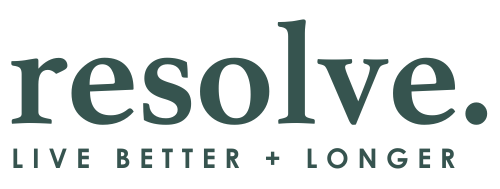Testosterone is often thought of as a “male” hormone, but it plays a crucial role in women’s health as well. While women produce significantly lower levels of testosterone than men, this hormone is essential for energy, mood, muscle mass, metabolism, and even cognitive function. When testosterone levels dip too low, it can lead to a range of symptoms that impact quality of life. In this post, we’ll cover what low testosterone means for women, how to test for it, its root causes, and both functional and conventional approaches to treatment.
Signs and Symptoms of Low Testosterone in Women
Women with low testosterone may experience a variety of symptoms, including:
- Fatigue and low energy
- Decreased libido or sexual dysfunction
- Difficulty building muscle or unexplained muscle loss
- Increased body fat, especially around the midsection
- Mood swings, depression, or anxiety
- Brain fog and difficulty concentrating
- Thinning hair or hair loss
- Poor exercise recovery
- Decreased bone density or increased risk of osteoporosis
- Lack of motivation or sense of well-being
Since many of these symptoms overlap with other hormonal imbalances (such as low estrogen or hypothyroidism), proper testing is key.
How to Test for Low Testosterone
Testing for low testosterone in women requires more than just a standard hormone panel. A comprehensive approach includes:
- Total and Free Testosterone – Measures both the bound and bioavailable (active) testosterone levels.
- DHEA-S – A precursor hormone that converts to testosterone.
- Sex Hormone Binding Globulin (SHBG) – High SHBG can bind up testosterone, making less available to the body.
- Estradiol and Progesterone – To assess overall hormonal balance.
- Cortisol and Thyroid Function Tests – Since chronic stress and thyroid dysfunction can suppress testosterone levels.
- DUTCH Test (Dried Urine Test for Comprehensive Hormones) – Provides a more detailed look at hormone metabolism.
Root Causes of Low Testosterone in Women
Several factors can contribute to low testosterone in women, including:
- Aging – Natural decline begins in a woman’s late 20s to early 30s.
- Chronic Stress – Elevated cortisol can suppress testosterone production.
- Insulin Resistance & Metabolic Syndrome – Disrupts hormone balance and reduces testosterone levels.
- Oral Contraceptives – Birth control pills can increase SHBG, lowering free testosterone.
- Poor Diet & Nutrient Deficiencies – Low zinc, magnesium, and vitamin D can impact hormone production.
- Lack of Exercise – Especially resistance training, which supports testosterone production.
- Over-Exercising or Chronic Cardio – Excessive endurance exercise can lower testosterone.
- Chronic Inflammation – Conditions like autoimmune diseases, gut dysfunction, or excessive toxic burden can impact hormone production.
- Poor Sleep – Disrupts hormone regulation, including testosterone levels.
Functional Medicine Approach to Low Testosterone
A functional medicine approach aims to address the root causes and restore optimal hormone balance naturally. Strategies include:
- Optimize Nutrition
- Eat a protein-rich, whole-food diet to support hormone production.
- Include healthy fats (avocados, nuts, olive oil) for hormone synthesis.
- Support blood sugar balance with fiber and protein at every meal.
- Ensure adequate intake of zinc, magnesium, and vitamin D.
- Manage Stress and Cortisol Levels
- Incorporate mindfulness, meditation, or deep breathing.
- Prioritize quality sleep (7-9 hours per night).
- Avoid excessive caffeine and alcohol intake.
- Exercise Intelligently
- Strength training at least 2-3 times per week to boost testosterone.
- Avoid excessive endurance exercise, which can deplete hormones.
- Support Gut and Liver Health
- Improve digestion with probiotics and fiber-rich foods.
- Reduce toxin exposure by choosing organic produce and minimizing processed foods.
- Consider liver-supporting nutrients like milk thistle and B vitamins.
- Addressing Underlying Conditions
- Insulin resistance, thyroid dysfunction, and adrenal fatigue can all contribute to hormonal imbalances. Addressing these conditions through targeted lifestyle and dietary changes can improve testosterone levels.
- Blood sugar regulation plays a crucial role in hormone balance. A diet high in refined carbohydrates and processed foods can worsen insulin resistance, leading to suppressed testosterone production.
- Supporting adrenal health through proper stress management and adaptogenic herbs can help balance cortisol levels and prevent further hormonal disruptions.
- Consider Adaptogens and Natural Supplements
- Ashwagandha – May help balance cortisol and improve testosterone levels.
- Maca Root – Traditionally used for hormonal balance and libido support.
- DHEA Supplementation (under medical supervision) – Sometimes used to increase testosterone production by serving as a precursor that the body converts into androgens. This can be particularly beneficial for women experiencing adrenal fatigue or age-related hormone decline. However, it should be used cautiously, as excessive supplementation can lead to unwanted side effects such as acne, hair growth, or hormonal imbalances.
- Testosterone Replacement Therapy (TRT)
- This can be in the form of topical creams, gels, or sublingual drops, but should be carefully monitored to avoid excess levels.
- Testosterone therapy is not widely prescribed for women due to concerns about long-term effects, including acne, hair growth, or voice deepening. This is why functional approaches that address root causes can be a safer and more sustainable option for many women.
Conclusion
Low testosterone in women can significantly impact energy, mood, metabolism, and overall well-being. If you suspect low testosterone, proper testing is key to identifying the cause. Functional medicine offers a holistic approach to restoring balance through nutrition, stress management, exercise, and targeted supplementation. If necessary, conventional treatments like hormone therapy may be an option under medical supervision.
If you’re experiencing symptoms of hormonal imbalance, our personalized medical care at Resolve Medical can help uncover root causes and develop a plan tailored to your needs. Schedule a free discovery call to learn more about how we can support your journey to optimal health.
RESEARCH + RESOURCES
Testosterone in Female Depression: A Meta-Analysis and Mendelian Randomization Study
The impact of testosterone imbalance on depression and women’s health.
Root Causes of Low Testosterone
Effects of Testosterone Therapy in Women
Testosterone for women: certainties and uncertainties.
Testosterone influences libido and well being in women.
Testosterone use in postmenopausal women.
Testosterone deficiency in women: etiologies, diagnosis, and emerging treatments.
Trials and tribulations of testosterone therapy in women: Importance of adhering to the evidence.




